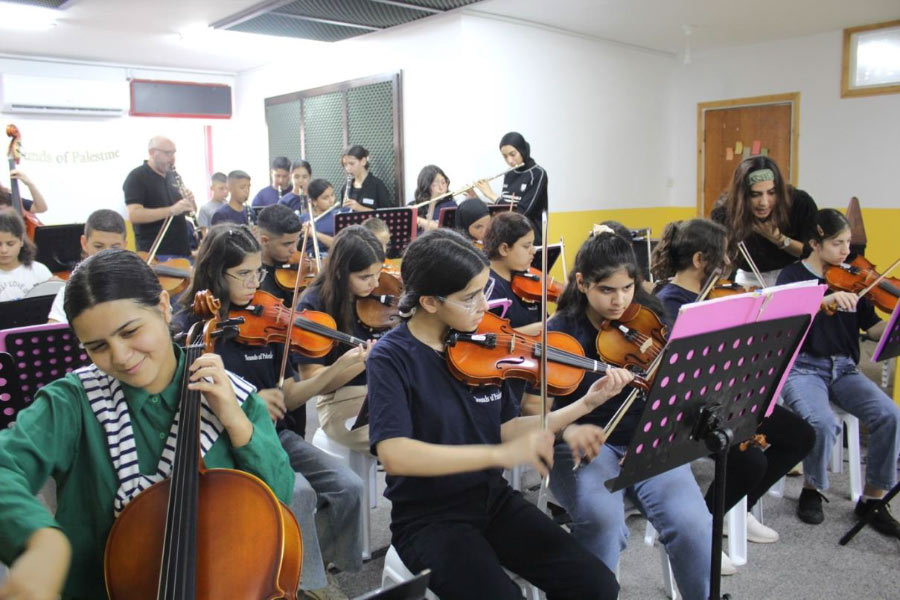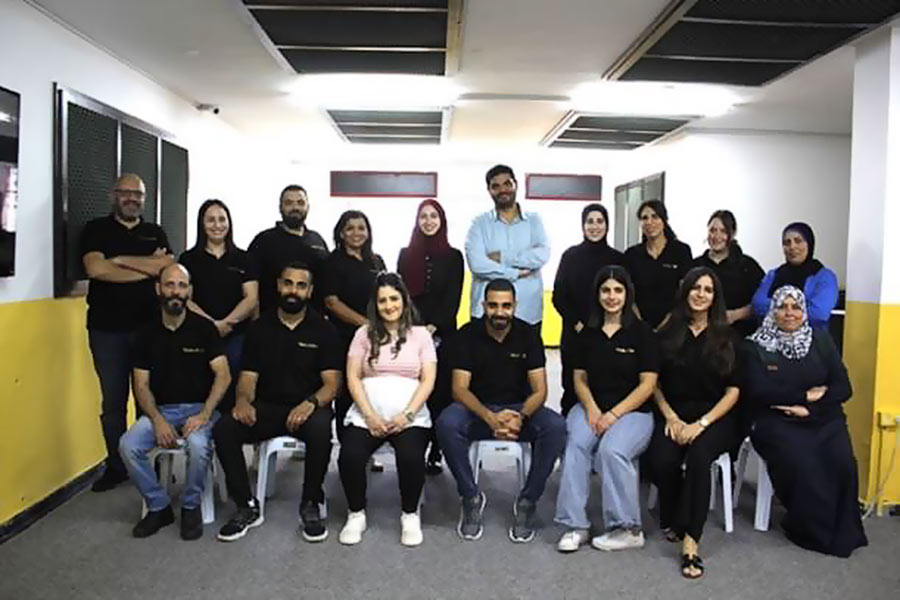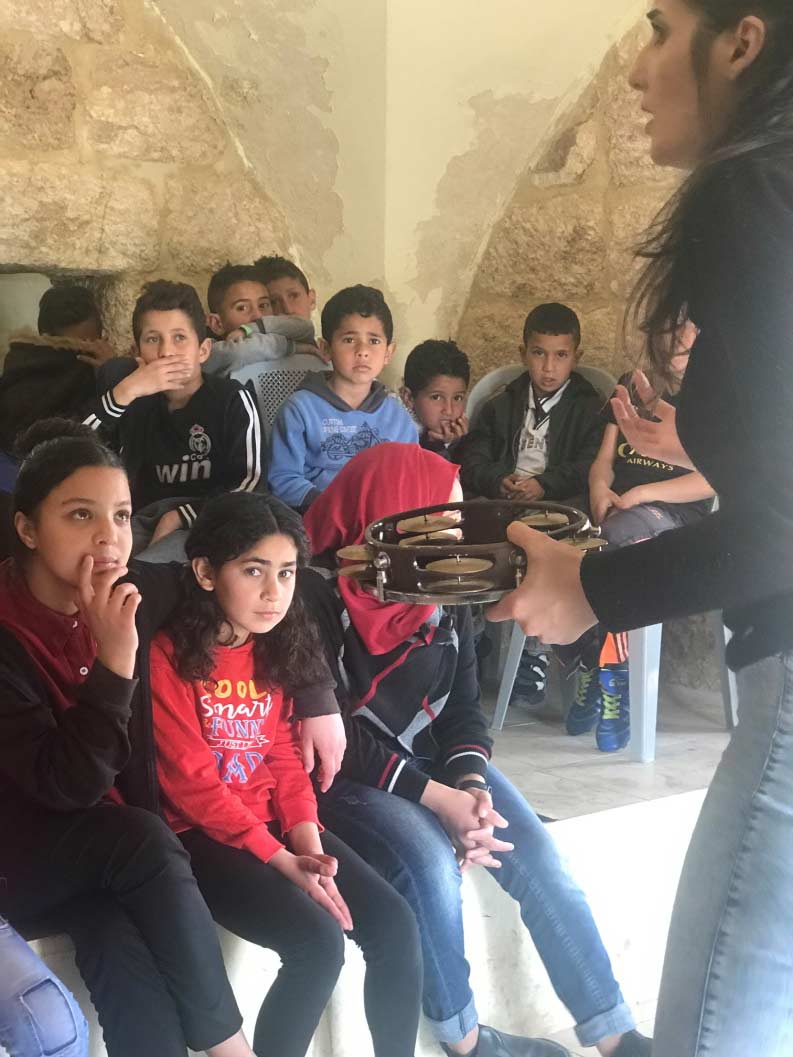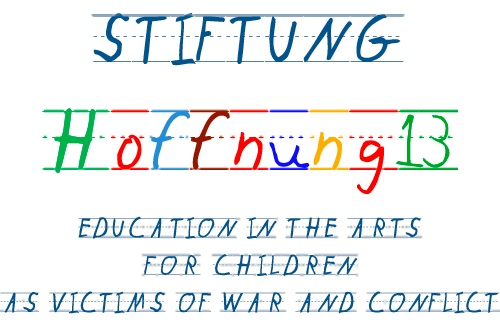2024
Partner organization: Katharina-Werk Sounds of Palestine
Summer music camp 2024
Sounds of Palestine – a social music project

Rehearsals (Photo: Sounds of Palestine)
The Sounds of Palestine music social project is a long-term program for disadvantaged children that began work in Bethlehem in 2012. Sounds of Palestine is inspired by the Venezuelan music school movement “El Sistema” and combines music education with socio-pedagogical work. It consists of a kindergarten program, which is currently attended by 100 children, and an afternoon program for schoolchildren, which is currently attended by around 150 children.
The aim is to support children’s development and strengthen their social skills. Playing music together several afternoons a week strengthens their self-confidence, stamina, concentration and teamwork skills. It helps them to let go of their fears and tensions and to cope better with their often difficult everyday lives. The program is geared towards the entire school career of the participating children and can thus provide lasting impetus.
In addition, young people aged 13-16 are supported in finding a career. This long-term aspect of Sounds of Palestine is a special feature in the local project landscape.
Environment of the children and young people
The children and young people come from the three refugee camps Al Dheisheh, Aida and Al Azzeh camp, which are situated around Bethlehem. These camps were built between 1949 and 1950 to accommodate refugees from the occupied territories.
The children and their families are the third and fourth generations to live in very cramped and precarious conditions in these camps. Around 65% of parents live on casual and part-time jobs, 15% are self-employed and only 20% have a full-time job. These also only have a low income.
Number of children and adolescents in the program
The program is currently attended by 66 children (30 girls and 36 boys) from 2nd to 6th grade (between 6 and 11 years old). They are split into two groups, Qastal and Najd. Since 2023, older young people can become members of the chamber orchestra. The group currently consists of 9 women and 6 men aged between 15 and 18 (two have already completed their compulsory schooling). They meet once a week to make music together and are trained and deployed as peer teachers.
On-site team

The team (Photo: Sounds of Palestine)
All employees of Sounds of Palestine live in the West Bank. The team currently consists of a project manager, five music teachers, six socio-educational staff, two security guards, two cleaners, a secretary and an accountant. In addition to a regular and secure salary, they all receive the opportunity for further training.
Music summer camp as an integral part of the program
In 2014, a music camp was offered for the first time to children in the afternoon program during the summer vacations. It provides the children and young people with a certain structure during their vacations and is often the only activity and entertainment during the long summer break. Since 2018, the camp has been run twice: Once for the younger children and once for the teenagers, as the number of participants in the afternoon program had become too large for a joint music camp.
Current situation
Never before have the challenges of planning and implementing the two summer camps been as demanding as this year. Every day, the security forces checked with the chauffeurs which routes could be used to pick up the children safely from the refugee camps and bring them back again after the events.
Catering for the children demanded a great deal of flexibility and creativity from the cook. Not only have food prices soared as a result of the armed conflicts, but there have also been repeated shortages of individual products, meaning that the menu has had to be adapted to the new realities at short notice.
The whole team, from the project manager, music teachers and social workers to the chauffeurs, security staff and cleaners – everyone did their utmost to provide the children and young people with a few days of music, games, joy and fun, despite all the difficulties.
Summer camp goals
The children and young people taking part come from socially disadvantaged families and a very difficult environment. With the summer camps, we pursue both social and musical objectives:
- Younger children (Qastal and Najd groups): The primary aim is to play their own instrument with increasing confidence and to maintain their own voice in the orchestra. Basic knowledge of music theory is deepened.
- Older teenagers (Yarda and Lifta group): In addition to strengthening their own playing and confidence in performing at concerts, also supported are music theory and dealing with rhythm and the young people are encouraged to improvise and write their own compositions.
Edited excerpt from the report by Barbara Cavelti, board member of Katharina-Werk Sounds of Palestine.
2019 – 2020
MAKAN – Children Play Therapy Initiative
The project MAKAN – Children Play Therapy Initiative with the music teacher Joline Shamieh Khader and the dancer Mohan C. Thomas from Essen has been on the road in Palestine since spring. They move from place to place in the West Bank, first Bethlehem, Hebron and Jericho, and spontaneously organise workshops with children and young people in cooperation with schools, summer camps, orphanages, Bedouin communities and others. These begin with a story read aloud and the children can develop their own interpretations of the story and its progression with drawing, shaping, music and dance.

Play therapy with children in Palestine (Photo: Joline Shamieh Khader)
Background
From Palestine, Joline Shamieh Khader (MAKAN project) wrote an interim report:
„It was crucial for us to proactively involve the children’s will in the decision-making process. Therefore, we asked for feedback from the students and their parents and asked: how can we best help? We were able to reach 410 children, 45 teachers, 12 assistants and 80 parents in three different cities. This was far more than what we had planned.
One of the most important success stories we have experienced is that after just one session, many children have felt that they want to share their lives and problems with us in a fun way.
During each session we try to build a relationship with the children before we do anything. So we start with an ice-breaker game and then we present them with a story and then they respond to it, but not through discussion, but through the following process:
1. we ask the children to draw who they are in this story and why.
2. we ask the children to finish the story in a way they like better.
3. we ask the children to make movements to describe how they felt about the story (usually in a circle).
4. we ask the children to play with sand and create shapes to express their emotions.
5. we print photos and small books for them to draw and write how they can tell their own story to other children.
6. we ask the children to play music with their own bodies, each chair and anything that plays music and sound in the rooms. We end with a lot of noise, but a lot of joy!
At the end of each session the children give a 2 minute presentation, some children tell the story only to me and other children like to share it with all the children. This moment is very emotional as some of the children’s reactions show how vulnerable the children are and how much they have to release.
Why storytelling? Or we call it “Creative Art Therapy” as we have found that storytelling is a good trigger because we can do all the other activities as part of it. Instead of telling a child to draw their fears, the children will do that by telling you about the story. We won’t just tell stories all the time, but we believe it is a great tool to get children to express their problems and be open to other activities.
We see and expect that the impact created within our children will be transferred to other children through our continued efforts and programmes. Every child has a story to tell through play. MAKAN provides the sites where this story can be expressed. Through play.“
